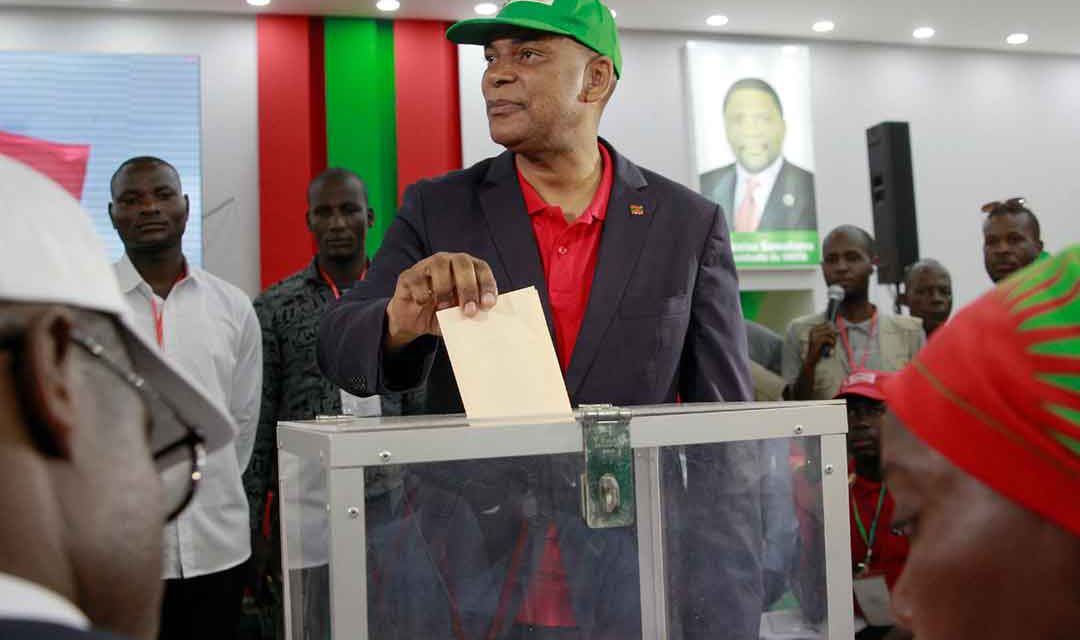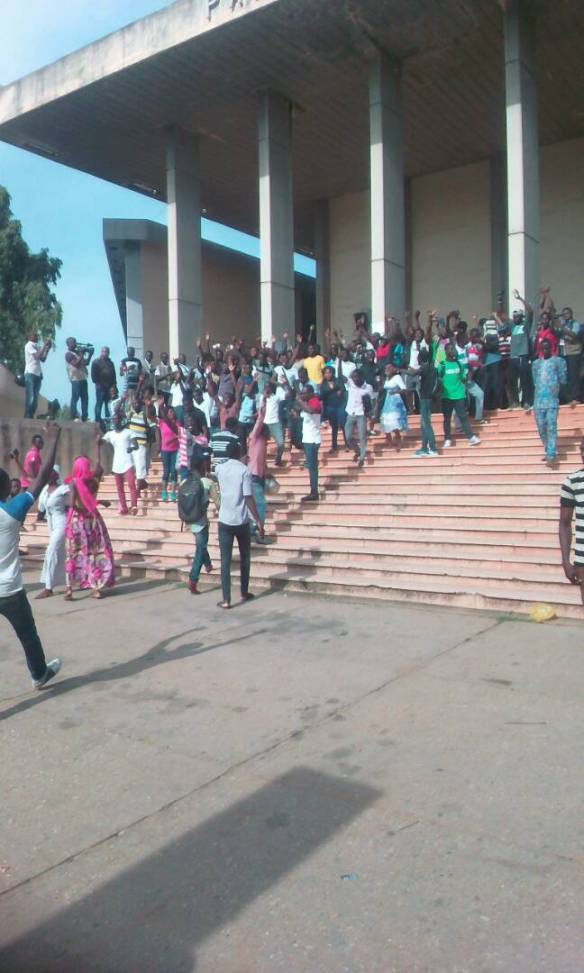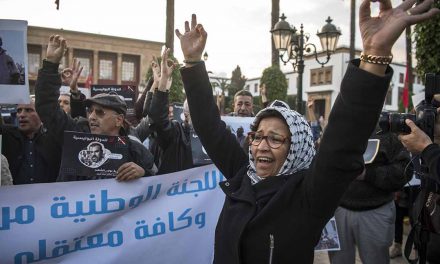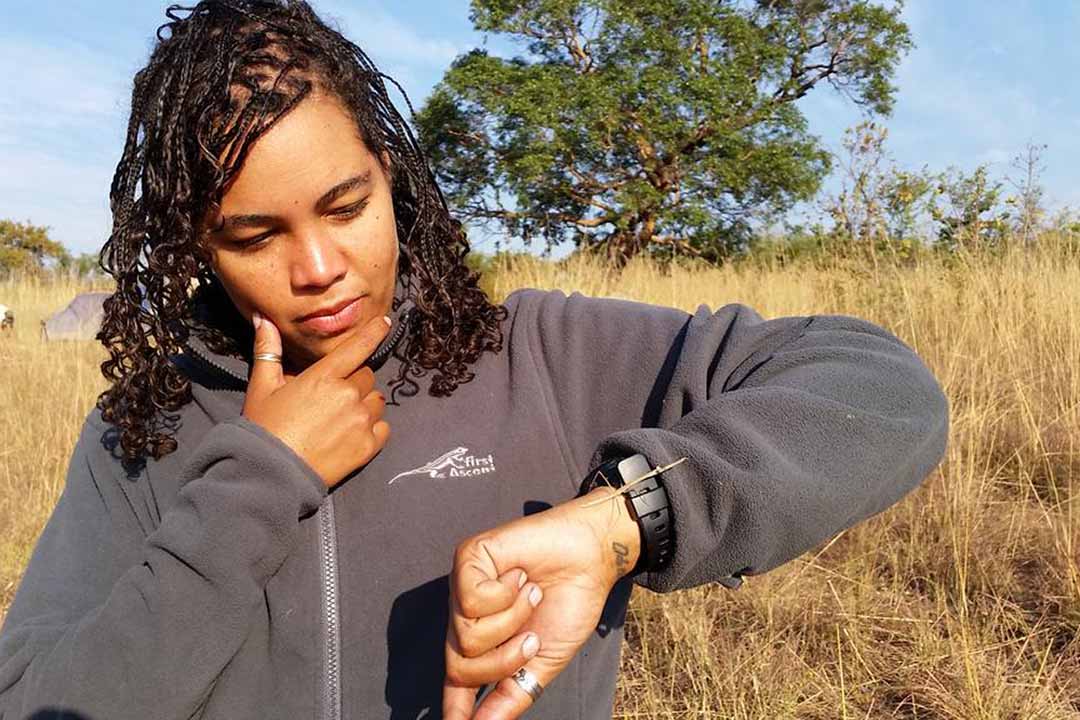Angola: local elections
The MPLA government has promised decentralisation many times, but is afraid of losing power

A street in Barra do Dande, a town in north-west Angola © Creative Commons
by Louise Redvers
In April 2015 the Angolan capital Luanda hosted the inaugural “President José Eduardo dos Santos” African Mayor Awards. Three prizes, named after Angola’s president of 36 years, were awarded to cities in Ghana, Tanzania and Cabo Verde, respectively, for their achievements in local government.
The event was organised by United Cities and Local Governments–Africa (UCLG-A), which has offices in Sandton, South Africa, and is supported by the Angolan government and the IC Publications Group, a company with publishing interests in Africa. But the judging panel, which included representatives from UN Habitat and UCLG–A, appears to have overlooked a glaring irony: Angola has no locally elected officials.
“That event was just about looking good on the international stage,” Raul Danda, parliamentary leader of Angola’s main opposition party, the National Union for the Total Independence of Angola (UNITA), told Africa in Fact. “It’s just another example of our government putting on a show for the outside world in order to conceal the reality of the country.”
Angola has held two general elections since its three-decade civil war ended in 2002, but no local elections. Opposition parties, including UNITA, civil society activists and governance experts want local polls, believing they will lead to more accountability at the municipal and provincial levels, as well as improving service delivery and budget management.
Oil-rich Angola has enjoyed an economic boom since the end of the civil war, but little of this wealth has trickled down to ordinary citizens. The United Nations’ 2015 Human Development Index ranks the country, sub-Saharan Africa’s third-largest economy after Nigeria and South Africa, at 149 out of 188 countries.
Buoyed by billion-dollar credit lines from China and Brazil, the Angolan government has prioritised big-ticket infrastructure projects, including roads, airports and football stadiums, over local programmes in education, healthcare and economic development. Meanwhile, millions live in slum-like conditions without access to basic services like water and electricity. Average life expectancy is just 51.9, and one in six children die before they reach their fifth birthday.
“There is a need for a feedback mechanism: people don’t have an outlet for their grievances, processes are weak and service demands are ignored,” says Paula Roque, an Angolan analyst at the University of Oxford. “This is stirring up a lot of dissatisfaction, particularly in the provinces, which feel very disconnected from Luanda, where all the decisions are taken.”
Angelo Kapwatcha, president of the Regional Forum for University Development (FORDU), who has been part of civil society campaigns around promoting local elections, added: “Local elections would mean real participatory democracy in a country, wh[ile] at the moment all important and significant decisions are left to the president and the central government.”
“There are a number of minority groups in Angola, like the Khoisan hunters and nomadic cattle famers, who are largely excluded from society,” he added. “Local elections would be an excellent opportunity for them to claim some of their fundamental rights, such as education, healthcare and birth registration.”
Opposition parties—which collectively hold just 45 out of the 220 seats in the national parliament—see local elections as potential leverage to tackle the hegemony of the Popular Movement for the Liberation of Angola (MPLA), which has governed the country since its independence from Portugal in 1975.
In the 2012 elections UNITA polled well in several of Luanda’s more densely populated neighbourhoods, such as Cacacuo and Viana, as well as in central provinces such as Huambo and Bie, where dissatisfaction with the government is high. In Luanda, UNITA got some of its candidates into parliament when it scored 24.7% of the vote as against the MPLA’s 59.3%, and its Luanda-list MPs were elected to parliament. The party believes it could win control of several local councils, given the opportunity to take part in free and fair local elections.
Local administrations, made up of three strands: community, municipal and province, currently have little autonomy. They follow orders and budget directives as set out by Luanda. Moreover, nearly all staff posts and the majority of leadership positions at community and municipality level in Angola are held by MPLA members. Provincial governors are hand-picked by the president, and in most cases they are also the first secretary of the MPLA in that province.
“You have a very politicised local government which is very party-orientated,”
explained Aslak Orre, a senior researcher at Norway’s Chr. Michelsen Institute (CMI), who has written several papers on local government, or the lack of it, in Angola. “Local administrations tend more to the needs of the ruling party than to the welfare and service needs of the people in their constituencies.”
Angola’s 2010 constitution sets out the institutional framework for local elections, known as autarquia in Portuguese, the official language. The framework stipulates a local assembly whose members are elected by “free and direct local elections” and an executive chosen by the president of the autarquia.
The government has indicated several times since 2010 that it planned to introduce local elections but in each case deadlines have come and gone—the most recent in 2015. Few Angolans expect local polls to take place before the next general election, due to be held in 2017.
“There is a lot of talk about local elections,” said Mr Danda of UNITA. “But it is all just to make people think the government is serious about having them. In reality, they don’t want them because they are worried [that they] will reduce their power.”
In his 2014 State of the Nation address, President Dos Santos said the country needed the “right conditions” for local elections, listing the need for new territorial boundaries, governance systems and financing structures. In his address in November this year he said local elections would take place “at the right time”.
Even if local elections were to take place before the 2017 general elections, there are concerns that they might not involve a significant devolution of power to the local level. “How much power will municipal officials really have if the president continues to appoint the provincial governors?” asked Ms Roque.
One option being floated by the government is to test the new local election system in provinces with the highest capacity, or availability of staff to manage the elections and good transport networks, rather than those in more rural and under-developed areas. But UNITA says this would focus on MPLA strongholds, and create more opportunities for vote-fixing. The opposition party says the government’s ministry of territorial administration is spearheading the preparation for the autarquias, rather than the National Electoral Commission, which has cross-party membership and is therefore more likely to be able to provide checks and balances than a government-led team.
Analysts agree, however, that the introduction of local elections will not solve all the country’s problems. “If you can improve accountability you would hope to improve the performance of local officials and the services they provide,” says Mr Orre. “But decentralisation is not a magic wand that will instantly fix problems.”
Soren Kirk Jensen, an associate fellow of the Africa Programme at London’s Chatham House who has studied decentralisation projects in Angola, agrees.
“Angola is extremely top-down in the way projects are decided upon and it would benefit from a more bottom-up approach,” he said. “But you do have to be very careful how you decentralise spending to ensure you also build in proper control and accountability, otherwise you risk just decentralising corruption.”
Local elections alone will not be enough to achieve fully accountable local government, he says. “You need to have informed and active citizen engagement to know how to hold [governments] to account.”
In a handful of municipalities, churches have been working with local communities to train people to monitor public projects, and in 2007 Angola passed the Local Administration Law, which led to the creation of citizen councils (CACS)—social committees designed to support municipal administrations in their decision-making processes.
It has since initiated the Municipal Programme for Rural Integration and Development and Combating Poverty (PMIDRCP), a programme aimed at empowering local officials to plan, commission and pay for local government projects from a small annual budget allocation from central government.
One advantage is that the PMIDRCP involves local officials in planning for their communities, says Mr Jensen. But the challenge remains to ensure that projects are completed on time and on budget. Government projects in Angola do not often meet these criteria due to a mixture of poor management, weak human and technical capacity and corrupt officials.
However, the World Bank and other organisations have been critical of CACS branches around the country. Meetings were held irregularly, they found, while rules of membership were unclear. They also found that the overall impact and reach of the committees has been limited, or conditioned by existing political structures.
“When CACS were first introduced they were seen as an important start for local democracy,” says Mr Orre. “But they haven’t been prioritised by the government. A lot of people are now asking whether the CACS are a way station on the road to democratic local governance, or simply a detour.”
“There is a lot of discussion about the autarqias,” he said, “But there isn’t lot of substance to what is being said. Ministers tend to make generalised statements about how important local elections are, but they don’t make commitments about when they will be held.”
Grassroots opinion of the Angolan elite and its way of holding onto power is even more acerbic. Playing with an official slogan, popular Angolan rapper MCK, in the lyrics of his song O país do Pai Banana (The country of Father Banana) wryly observes: “They’ve transformed Angola into ‘a country of the future’. We’ll leave everything until tomorrow, don’t you think?”
Louise Redvers is a freelance journalist who has reported from Angola, Swaziland and Zambia for the BBC, the Mail and Guardian, The Africa Report and other media. After five years in Africa, she recently relocated to the Middle East.













